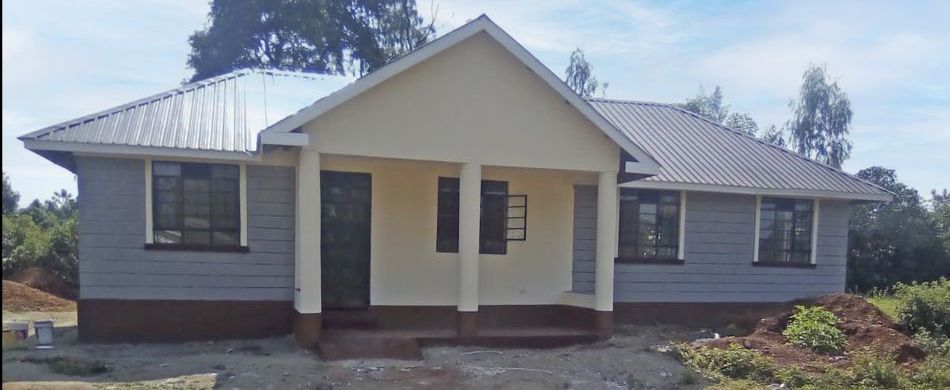Soul & Body
WHEN THE Missionary Sisters of Saint Luke arrived in Ugunja in 2019, they were met with a heartbreaking reality: countless orphaned children struggling to survive on the streets. “There were orphans from the age of 3 to 16, many of whom had lost their mothers during child birth while others had lost their fathers,” says Sister Adeline Inana Yinda, Mother General. “With the loss of the father, the mothers often find themselves evicted from their houses. Without work or income, and with no means to support their children, they have little option but to abandon them to fate. With no family support, many children are left to fend for themselves on the streets. They rely on the kindness of local Christians who share their food, but some resort to theft for survival. As they grow older, many become vulnerable to exploitation, including prostitution.”
Ugunja, with a population of around 6,500, is situated approximately 72 kilometers from Kisumu, Kenya. “The majority of the inhabitants live from agriculture and animal husbandry,” continues Sr. Adeline. “The economic and intellectual situation generates poverty and, as a result, multiple problems including the impossibility of accessing health care and education, juvenile delinquency, prostitution, and early marriages.”
Black-African spirituality
The Missionary Sisters of Saint Luke were founded in 1994, and were recognized officially in August 1999 by Cardinal Federic Estou Nzabi Bumungwabi. “We have Saint Luke – a doctor and man of science, evangelizer of God’s mercy – as a worthy and shining model of Christian life,” explains Sr. Adeline. “We are moved by the desire to take on a pastoral-medical role in the Church to live out its charism in ‘the care of the sick, the care of the elderly and the orphaned and abandoned, the education of the young, and the formation of mothers and single young mothers.’” Although there are only 20 Sisters, they serve not only in Kenya, but also in the Democratic Republic of Congo, Tanzania, and Italy.
“Having a Black-African origin, our congregation is committed to drawing on positive African cultural elements to unite them with the classical requirements of religious life,” continues Sr. Adeline. “The logic of interculturation means bringing Christianity into a given culture in order to enliven it from within, enhancing positive cultural elements as much as possible, correcting the less good ones, and categorically rejecting those that delay the coming of God. Specifically, we draw from the four basic cultural elements of Black-African culture: the joy of living, solidarity-hospitality, dialogue, and religious sense – the cultural riches necessary to enrich our spiritual, community, professional, and apostolic life.”
€26,000 granted
Many of the street kids have grown up without parents, without shelter in an orphanage or roof over their heads, no health care, no education. Many show signs of illness due to malnutrition and hunger. Almost all of them are illiterate, and the majority have never attended a school. Since 2019 the Sisters have taken care of over 100 street kids in three villages: Daho, Ugunja, and Umina. Every day, the Sisters have walked three kilometres to give the children food and medicines. Food was distributed outdoors in conditions that were far from hygienic.
To improve the lot of these street kids, the Sisters envisaged a project to construct a kitchen with a canteen. It would also have showers. It would be built on land owned by the Sisters in the village of Ugunja, in the parish of Saint Joseph. “We are convinced that all children have the right to a happy childhood,” says Sr. Adeline. “The new structure will welcome the kids in a hospitable, dignified, and hygienic place while guaranteeing them with hot, healthy food twice per day. The five showers will also allow them to improve their own personal hygiene.”
The total construction cost was €34,500, which included €2,500 for furniture and kitchen equipment. After taking into account local contributions and a €5,000 donation from an Italian charity, Cuore Amico (Heart Friend), St. Anthony’s Charities granted €26,000. The Sisters will continue to guarantee the food supplies required to continue feeding the children, and also intend to run fundraising campaigns to raise money for food, hygiene products, and clothing for the kids.
In keeping with many projects financed by St. Anthony’s Charities, funds were released in three tranches – each subsequent payment released on completion of the previous phase.
Heartfelt thanks
The first phase of the project experienced slight delays due to a generalized illness, but commenced in January 2024. Additional delays and challenges arose due to heavy rains in February. The land was cleared and excavated ready for the foundations. The construction of the foundations followed together with completion of the floor in concrete and a small elevation of the walls. The second phase continued in June 2024, with further elevation of the walls and the construction of the roof of the building and commencement of the finishings of the internal walls and ceiling.
The third and final phase of the development began in July 2024 on receipt of the remaining funds. The interior and exterior finishings of the building were finalised, the electrical system put in place, doors and windows fitted, floors finished, painting completed, and the bathrooms, showers and plumbing systems installed. The cooker for the kitchen, together with tables and chairs for the canteen, were purchased, and suitable ventilation put in for the kitchen. The project was completed on December 18, 2024.
“The authorities inspected the canteen and showers we built and gave us permission to welcome children,” reports Sr. Adeline. “In addition to the street kids, we have expanded our service to give hot food to the elderly and lonely women of our parish. We give a heartfelt thanks to St. Anthony’s Charities and the readers of the Messenger of Saint Anthony for their generosity.”



